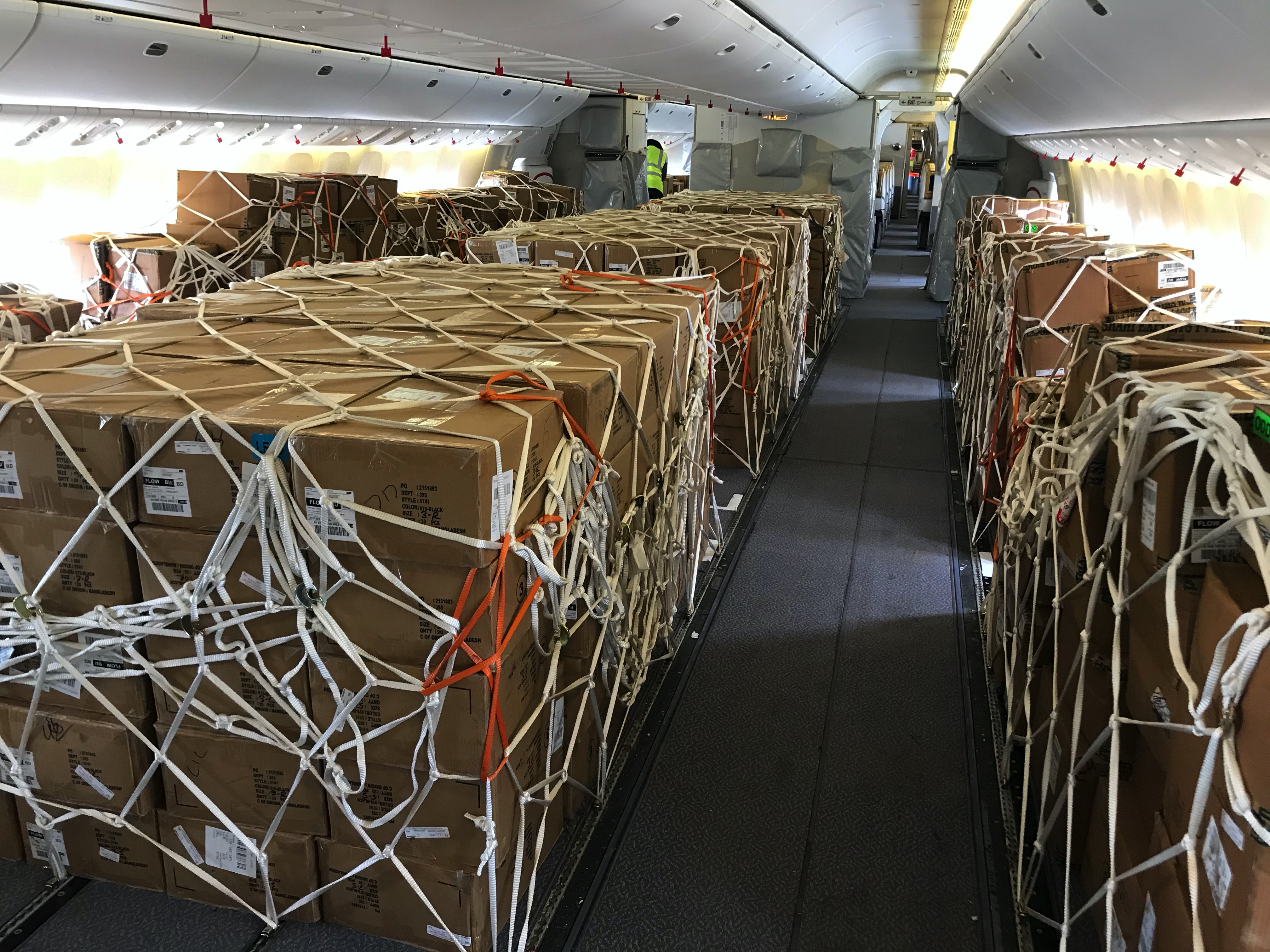Ohio’s Rickenbacker airport bucks global air freight slump
Regional logistics facility sets June records for freight volumes, citing surge in PPE imports.

Pandemic related business closures have triggered deep losses for many freight-related businesses, but spikes in demand for certain products have also created red-hot conditions for others, such as today’s report of record-breaking cargo volumes in June at Ohio’s Rickenbacker International Airport.
Rickenbacker eclipsed its all-time records for both international freighter arrivals and international tonnage offload in June, according to the Columbus Regional Airport Authority (CRAA). Those figures included 120 international arrivals—surpassing the previous record of 109 in November 2018—and 9,123 metric tons of international tonnage offload, over the old mark of 7,251 metric tons, also in November 2018.
The report comes as trade group the International Air Transport Association (IATA) reported yesterday that global air freight markets continued to shrink quickly in June, but at a slightly slower pace of descent than the previous month. Worldwide, June statistics showed that global demand as measured in cargo tonne-kilometers (CTKs), fell by 17.6%, global capacity as measured in available cargo tonne-kilometers (ACTKs) shrank by 34.1%, and belly capacity for international air cargo shrank by 70%.
While those aggregate trends show stark conditions for the sector globally, they include some far better performances in specific regions. The coronavirus has created feast-or-famine conditions across different products and geographies, the group’s statistics showed.
Compared to the global plunging numbers, North American air freight carriers reported only a single digit fall in international cargo demand of 8.8% year-on-year in June. That was the smallest contraction of all regions, thanks to the large freighter fleets of a few of the region’s airlines and to fiscal support provided to airlines in the $2.2 trillion federal stimulus bill called the CARES Act, an acronym for Coronavirus Aid, Relief, and Economic Security, IATA said.
Likewise, Rickenbacker International Airport attributed its surge “almost entirely" to air cargo charters bringing in personal protective equipment (PPE) and other pandemic supplies for regional distribution. While the spike is not indicative of long-term trends, it speaks volumes about the airport’s ability to adapt and innovate, the CRAA said. For example, Rickenbacker Aviation, the airport’s fixed-based operation, partnered with Emirates SkyCargo and freight forwarder EFL to handle the Boeing 777-300ER. That passenger aircraft is now serving in a critical cargo-carrying role as the pandemic-induced shortage of air freight capacity continues.
“During this time of extreme supply chain disruption, Rickenbacker has proven to be an asset for the Columbus Region and the nation, serving as an efficient connection point to and from the U.S. market,” CRAA president & CEO Joseph R. Nardone said in a release. “As one of the world’s only cargo-dedicated airports, Rickenbacker is demonstrating the advantage of doing business with a flexible and nimble team when time is of the essence. What takes other airports days, takes us hours.”
- To see further coverage of the coronavirus crisis and how it's affecting the logistics industry, check out our Covid-19 landing page.
- And click here for our compilation of virus-focused websites and resource pages from around the supply chain sector.
NEWS: In June, Rickenbacker eclipsed all-time records for both international freighter arrivals and international tonnage offload. Learn more: https://t.co/2AowU7EYkL #aircargo pic.twitter.com/odPlrEmyh2
— Rickenbacker Airport (@RickIntlAirport) July 29, 2020
Related Articles

Copyright ©2024. All Rights ReservedDesign, CMS, Hosting & Web Development :: ePublishing